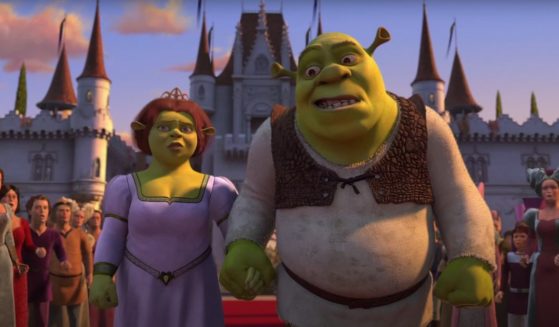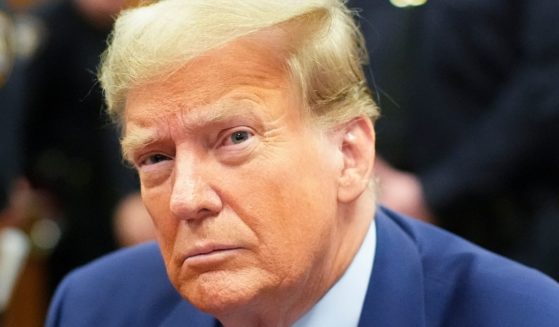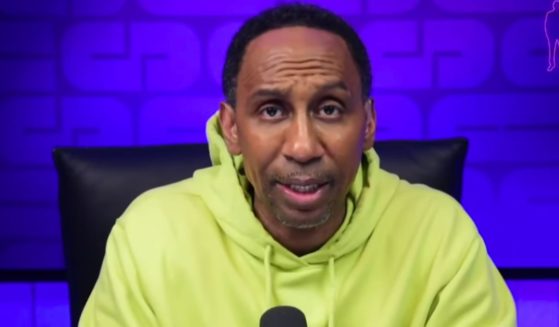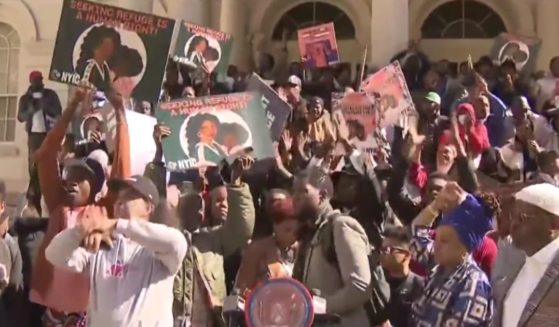Former Clinton Official Who Helped Push Pro-China, US Job-Killing Law Named Biden Counselor
Steve Ricchetti should be the measure of what a potential Biden administration will look like.
Ricchetti isn’t popular among Trump supporters because he helped shepherd through Congress one of the most one-sided trade agreements in recent American history, the Permanent Normal Trade Relations deal with China. The left wing of the Democratic Party doesn’t like him because he doesn’t reside in the swamp so much as use it as his hot tub; a former pharmaceutical lobbyist, the AOC-friendly cohort among the Democrats worry he’ll be an impediment to expanding government-run health care.
He was Biden’s chief of staff when Biden was vice president and he played an integral part in the Democratic nominee’s 2020 campaign.
Now, presumptive President-elect Biden has tapped him to be counselor to the president — even though, as the Daily Caller News Foundation reported Wednesday, the lobbying firm he and his brother co-founded disclosed earlier this month that it lobbied on behalf of a semiconductor materials company regarding “issues related to US-China relations and potential impact on commercial relationships.”
Long before that, though, Ricchetti was tasked by former President Bill Clinton with helping lead negotiations with Congress, where many Democrats were opposed to the PNTR bill.
As the DCNF’s Chuck Ross reported Tuesday, Clinton announced Ricchetti’s role in January 2000, saying he would partner with then-Secretary of Commerce Bill Daley in the effort to rustle up votes.
Those remarks are notable for some of Clinton’s statements on the bill, including his assertion that American “products will gain better access to China’s market in every sector from agriculture to telecommunications to automobiles” while “China gains no new market access to the United States, nothing beyond what it already has.”
He added that “by joining the [World Trade Organization], China agrees to play by the same trade rules that we do.”
“This agreement is a good deal for America,” Clinton said.
Yes, well, things didn’t quite work out that way. In an April 2000 statement, California Democratic Rep. Nancy Pelosi — some time from becoming speaker yet — said that the “U.S.-China bilateral WTO agreement, however, is seriously deficient in substance, implementation and enforcement.”
“On the basis of trade alone there is enough reason to oppose PNTR at this time. China has violated every trade agreement it has made with the U.S. over the last ten years,” she said.
“The Chinese government has broken agreements on opening its markets, stopping the piracy of intellectual property and ending the export of slave labor-produced goods. It is already backing away from the 1999 U.S.-China bilateral agreement, on which President Clinton has based his request for PNTR. China’s pattern of violating trade agreements behooves the U.S. Congress to retain its authority for annual review of China’s trade record.”
Good grief, Nancy Pelosi was more prescient on this issue than Joe Biden was.
The bill ended up passing the House in May 2000 (after which Clinton credited Ricchetti and others with helping it get approved) and the Senate in September of that year.
But it didn’t exactly help American workers.
The Economic Policy Institute — no friend to the populist right, mind you, when you consider that far-left economist Robert Reich is among its co-founders — said in a January 2020 report that “[t]he growth of the U.S. trade deficit with China between 2001 and 2018 was responsible for the loss of 3.7 million U.S. jobs, including 1.7 million jobs lost since 2008 (the first full year of the Great Recession, which technically began at the end of 2007). Three-fourths (75.4%) of the jobs lost between 2001 and 2018 were in manufacturing (2.8 million manufacturing jobs lost due to the growth in the trade deficit with China).”
The EPI also noted that “China’s entry into the WTO in 2001 was supposed to bring it into compliance with an enforceable, rules-based regime that would require China to open its markets to imports from the United States and other nations by reducing Chinese tariffs and addressing nontariff barriers to trade.”
“However, China’s trade-distorting practices, aided by China’s currency manipulation and misalignment and its suppression of wages and labor rights, resulted in a flood of dumped and subsidized imports that greatly exceeded the growth of U.S. exports to China,” the report read.
Another paper co-written by a Yale researcher and a Federal Reserve Board of Governors economist found similar conclusions.
“U.S. manufacturing employment fluctuated around 18 million workers between 1965 and 2000 before plunging 18 percent from March 2001 to March 2007,” the 2012 paper for the National Bureau of Economic Research found.
“In this paper, we find a link between this sharp decline and the U.S. granting of Permanent Normal Trade Relations (PNTR) to China.”
This is made even more problematic by the fact that the lobbying firm that Ricchetti co-founded — Ricchetti Incorporated, because apparently originality in branding wasn’t en vogue back in the aughts — registered this past August to represent Applied Materials in Washington on China-related issues.
Now, Steve Ricchetti has been delisted as a lobbyist since 2008. However, his unoriginally branded lobbying firm is currently run by his brother Jeff Ricchetti — who’s representing Applied Materials, lobbying to reduce barriers for them to enter the Chinese market and receiving $40,000 for the endeavor.
It’s unclear what kind of role Ricchetti would have in a potential Biden administration. That’s because, according to CNBC, he’s already being pressured to recuse himself on matters related to the health care and pharmaceutical industry.
Likewise, he could be asked to recuse himself on China, which would be problematic either way. However, his ties to the lobbying firm are unclear at this point, particularly since he was delisted as a lobbyist in 2008.
If Biden gives in, Ricchetti would be toast. If he doesn’t, it essentially establishes Biden’s brand: He is a man for all access.
Biden ran against being tough on China. Consider this, from Reuters on Nov. 8: “After initial efforts to engage Beijing, Trump’s administration took this further, pushing back forcefully against China’s efforts to spread its influence globally, earning some grudging praise from Biden advisers despite a bitterly fought election campaign.”
“Biden has not laid out a detailed China strategy, but all indications are he will continue the tough approach to Beijing.”
By hiring people like Steve Ricchetti, one assumes.
Truth and Accuracy
We are committed to truth and accuracy in all of our journalism. Read our editorial standards.












